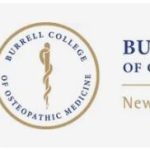Florida State University College of Medicine (FSU COM) is one of the nation’s premier medical schools, established in 2000. Located in Tallahassee, Florida, FSU COM is part of the larger Florida State University campus and provides a comprehensive education to its students. FSU COM was originally founded as the Tallahassee branch of the University of Miami Medical School in 1960. In 1965, it was renamed to become a four-year medical school and was known as the Florida State University School of Medicine. In 2000, FSU COM opened its doors as an independent medical school with its own admissions process and curriculum.
Since its establishment in 2000, FSU COM has grown significantly in size and scope. It now offers over twenty-five degree programs at both undergraduate and graduate levels. The college has also expanded its research activities with numerous grants from private foundations and government agencies like the National Institutes of Health. The faculty at FSU COM consists of many distinguished scholars who specialize in a varietyof areas such as family medicine, pathology, surgery, pediatrics, radiology and more. Additionally, there are several research centers focused on topics ranging from cancer to Alzheimer’s disease to genetics. Furthermore, FSU COM has recently launched a new interdisciplinary program that combines medical education with business management for those interested in healthcare administration or research administration careers.
Florida State University, abbreviated as FSU, is one of the top-ranked U.S. medical schools located in Tallahassee, FL. Keep reading to see admissions application information including average GRE scores, admissions selection factors and dual degree programs of Florida State University.
1115 W. Call Street
Tallahassee, FL 32306-4300
(850) 644-7904
Admissions E-mail: medadmissions@med.fsu.edu
Web site: http://www.med.fsu.edu/
Electronic application: N/A
Fall 2008 Admissions Information
AMCAS application accepted? Yes
Earliest application date: 06/01
Application deadline: 12/15
Oldest MCAT considered: 2004
Application fee: N/A
Director of admissions: Dr. A. Peter Eveland
Does this school ask for a secondary application as part of the admissions process? Yes
This school requires undergraduate work in these subjects in order to apply: biology, English, organic chemistry, inorganic (general) chemistry, physics, biochemistry, mathematics, general chemistry
Is a personal interview required for admission? Yes
Are interviews conducted at the medical school? Yes
Acceptance notice to regular application for the 2007-2008 first-year class:
-Earliest date: October 15
-Latest date: May 29
Applicant’s response to acceptance offer for the 2007-2008 first-year class:
-Maximum time in weeks: 2 weeks
-Does the school consider requests for deferred entrance? Yes
-Deposit to hold place in class: $30
-Deposit due: At time of acceptance offer
-Deposit refundable prior to: N/A
-Starting month for the class of 2007-2008: June
Early Decision Plan application period for the 2007-2008 first-year class:
-Does the school have an Early Decision Plan (EDP)? Yes
-EDP application period begins: June 1
-EDP application period ends: August 1
-EDP applicants notified by: October 1
Fall 2005 Admissions Statistics
The Florida State University College of Medicine has an impressive admissions record. In the 2020 entering class, there were approximately 463 students. Of those students, 95% were in-state residents and 5% were out-of-state residents. The average GPA for accepted applicants was 3.77, and the average MCAT score was 505. Additionally, the college boasts a diverse student body with over 35% of students identifying as members of underrepresented racial/ethnic groups. The college also has a strong commitment to holistic admissions with emphasis placed on qualities such as leadership and service experience as well as academic performance. Furthermore, the college offers generous financial aid packages to help offset the cost of tuition for accepted applicants. Last year, over 50% of accepted applicants received some form of financial aid package from the university and nearly 40% received scholarships or grants that covered full tuition costs. With its competitive admissions standards and commitment to providing quality education to all accepted students, Florida State University College of Medicine is an excellent choice for aspiring medical professionals looking for a top-notch medical education experience.
| Applied | Interviewed | Accepted | Enrolled | |
| Total: | 1,849 | 372 | 193 | 100 |
| In-state: | 1,251 | 372 | 193 | 100 |
| Out-of-state: | 598 | 0 | 0 | 0 |
| Women: | 933 | 201 | 108 | 66 |
| Minorities: | 707 | 189 | 51 | 33 |
| International: | 0 | 0 | 0 | 0 |
Acceptance rate: 10.4%
GPA
Average undergraduate GPA: 3.64
MCAT
Overall score (composite): 9.0
Verbal reasoning: 9.0
Physical sciences: 8.4
Biological: 9.1
Writing: O
Undergraduate Majors
Biological sciences (biology, microbiology, zoology, etc.): 35%
Physical sciences (biochemistry, chemistry, engineering, etc.): 16%
Non-sciences (sociology, economics, English, etc.): 7%
Other health professions (nursing, pharmacy, etc.): 25%
Mixed disciplines and other: 17%
|
Combined Degree Programs
Combined degree programs offered: N/A
Does the school have a combined college/M.D. program? Yes
Number of years to complete combined college/M.D. program: 7 years
Web site for combined college/M.D. program: honors.fsu.edu/prospective/main/med_legal.html
Selection Factors
Details on the policies, preferences, criteria, factors and procedures used in the M.D. admission process:
(Data appear as originally submitted by this school)
We seek students who have demonstrated a commitment of service to others and we encourage applications from traditional and nontraditional students, as well as students from rural, inner city or other medically underserved areas. An applicant should be a legal resident of Florida with completed prerequisite courses in English, biology, chemistry, organic chemistry, physics, and biochemistry.








